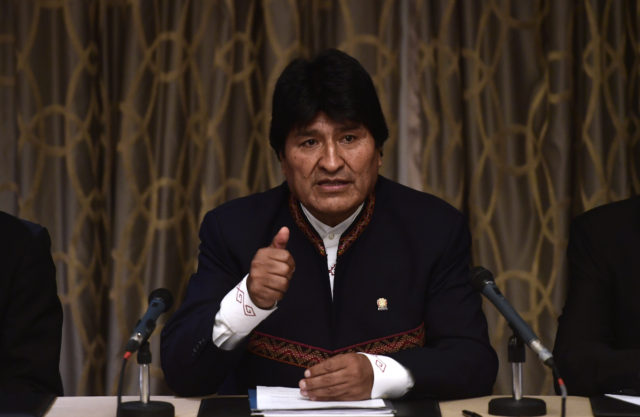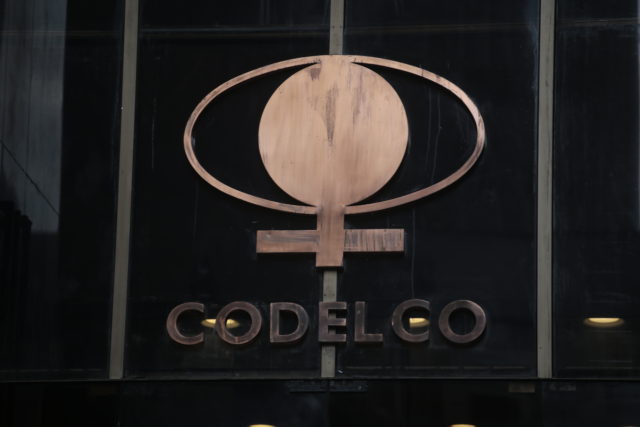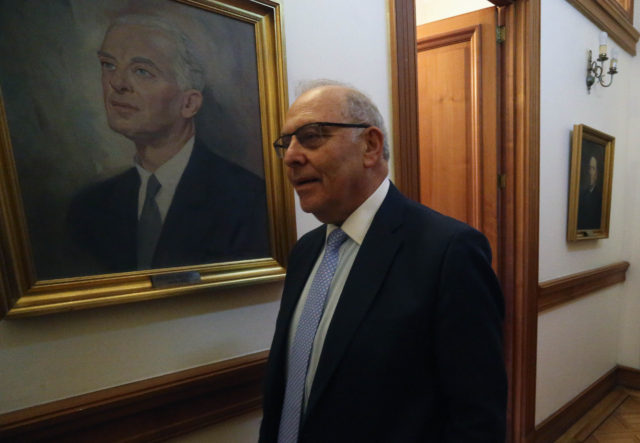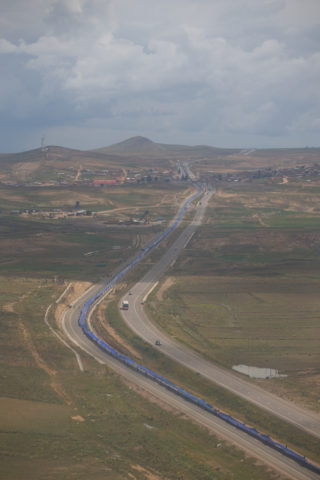On 19, 20, 22, 23, 26 and 28 March, the International Court of Justice (ICJ) in The Hague, Netherlands, is set to hold public hearings regarding Bolivia’s claim to make Chile negotiate an access to the Pacific Ocean, after the proceedings instituted by the land-locked nation against its neighbour on 24 April 2013.
Bolivia seeks to reach an agreement that grants them a “full sovereign access” to the sea given that the ICJ has jurisdiction on Article XXXI of the Pact of Bogotá, also known as the American Treaty on Pacific Settlement, which dates back to 1948, ratified by Chile in 1967 and 1974.
Notwithstanding, during the May 2015 hearings, Chile assured that the petition did not fall within the purview of the Court, objection that was dismissed by the ICJ.
In its memorial, president Evo Morales’ country stated that “Chile has the obligation to negotiate with Bolivia”, but affirmed that said affair has been breached by our country.

Bolivia lost its almost 400-kilometer coastline -and approximately 110 thousand square kilometers of territory- after the War of the Pacific, fought from 1879 to 1884.
The conflict originated due to the 1878 imposition of a tax by Bolivia on the saltpeter extracted by Chilean firm Antofagasta Nitrate & Railway Company, despite signing a treaty in 1873 that fixed for a 25-year period tax rates on Chilean businesses.
Before that, the Andean nation had access to the sea through what currently is known as the Antofagasta region. To the north lie the Tarapacá and Arica y Parinacota regions, formerly Peruvian soil, provinces lost by Perú during the same war.
Bolivian sovereignty officially came to an end in March 1905, when the Treaty of Peace and Friendship, or the “1904 Peace Treaty”, came into force, document that was signed by both countries and that guaranteed, to this day, a right of commercial transit to Chilean ports.
Once believed to be barren, dry, desertic land, the Antofagasta region ended up hosting one of the world’s largest copper deposits, as well as an array of different minerals, such as gold, silver and lithium, among others.
In fact, Chile held for a long time the title of largest copper producer on Earth, with mining playing a central role in both its Gross Domestic Product and economic development. However, 2017 marked the ninth consecutive year of drops in terms of production, going from 34% of the world’s share, in 2008, to 26% last year.

Bolivia, on the other hand, is also rich in gold, silver and lithium, but it also possesses large deposits of iron, natural gas and tin.
If the Court rules entirely in favour of Bolivia, it would mean that Chile has had all along the obligation of negotiating a route to grant them an access to the Pacific and that that process has not been carried out. Nonetheless, the results of such talks will not be determined by the ICJ, let alone how said results are to be achieved.
This Sunday morning, in what was considered to be a joke, president Morales said that he himself would plead their case in front of the judges during the Monday hearing. “If they ask me, it could be”, the head of State told the press.
Asked about a possible intervention by Morales, the Chilean agent, Claudio Grossman, said that they have considered that and many other scenarios. “You will see what our answer will be when it is our turn to speak on Thursday”, Grossmann affirmed.

On 10 March, tens of thousands of Bolivians took to the streets to support their country’s position and hold a 200-kilometer blue ribbon, symbol of the maritime revindication, between two towns on the outskirts of La Paz.









